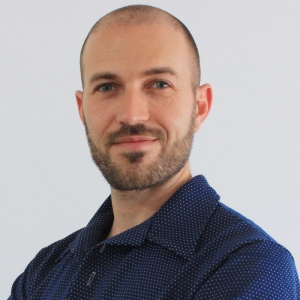Social Work PhD Candidate Combats Violence Against LGBTQ Youth in Schools
June 12, 2019- Students
- Research
Social work PhD candidate Cary Klemmer advocates for systemic change in U.S. schools to protect LGBTQ youth from violence and stigma.
Approximately 42 percent of LGBTQ youth claim they live in a community that doesn’t accept LGBTQ people. Disparities in victimization are especially pronounced in U.S. schools, where 4 out of every 5 LGBT students report that they experience frequent harassment based on their appearance or perceived sexual orientation. What’s more, LGBTQ students are twice as likely as their non-LGBTQ peers to be physically assaulted.
In honor of LGBTQ Pride Month, we’re highlighting the work of Cary Klemmer, MSW ‘16, and PhD candidate at the USC Suzanne Dworak-Peck School of Social Work, who specializes in understanding the experiences of LGBTQ adolescents in school settings. Klemmer served as the leading author on a recent study published in the Journal of Interpersonal Violence titled “Socially Assigned Gender Nonconformity and School Violence Among Transgender and Cisgender Adolescents,” exploring the prevalence of violence against socially assigned gender nonconforming, or SAGNC, youth in Los Angeles schools.
Covering new ground
During the course of his studies at the USC Suzanne Dworak-Peck School of Social Work, Klemmer recognized a gap in the body of research focused on LGBTQ issues. “In general, there is a dearth of school-based data detailing the experiences of transgender and SAGNC youth, whether they are cisgender or transgender,” he said. SAGNC young people, he clarified, are those whose gender expressions do not conform with the social expectations placed upon them (for example, that young men will always act in a way that is traditionally accepted as masculine). He and his research colleagues set out to better understand what it is like for these youth who do not conform to prevailing gender expression norms and expectations.
In particular, Klemmer and his colleagues examined physical and verbal violence, bullying, as well as the perceived threat of violence against SAGNC adolescents in schools.
Klemmer and his team conducted a secondary analysis of data on students in the Los Angeles Unified School District (LAUSD) collected from the Youth Risk Behavior Survey (YRBS), a biannual Centers for Disease Control and Prevention (CDC) initiative that seeks to monitor the health-related behaviors of ninth through 12th grade students across the United States.
From the survey results, Klemmer gathered data on LAUSD students’ sexual orientations, gender identities and experiences with violence, among other factors. He and his team subsequently used statistical analyses to determine the relationship between gender nonconformity among students and rates of school violence experience.
Understanding the victimization of socially assigned gender nonconforming students
The key findings of Klemmer’s study illustrate the disproportionately high rate of victimization experienced by SAGNC students in Los Angeles schools. The study found that “[for] all outcomes, socially assigned gender nonconforming adolescents reported a higher proportion of violence than did socially assigned gender conforming adolescents.”
“The percentage of socially assigned gender nonconforming adolescents who reported missed school due to safety concerns was 10.7 percent—nearly double that of the students who identified as socially assigned gender conforming, ” Klemmer said. “We found similar results when evaluating student bullying. Just over 32 percent of socially assigned gender nonconforming students were bullied compared to approximately 19 percent of their gender conforming peers.”
The study also found that SAGNC students aren’t the only victims of this elevated violence and discrimination. Lesbian, gay, bisexual and questioning students were found to be 70 percent more likely to report having been involved in a fight and 2 1/2 times more likely to have been bullied than their heterosexual peers, according to the team’s analysis.
Taking action at the structural level
Klemmer’s findings hold implications for the mental health and well-being of SAGNC youth. “Research suggests that LGBTQ youth and those who defy expected norms of gender expression, whether LGBTQ or not, endure stigmatization and can experience negative mental health effects as a result, including low self-esteem, depression and anxiety,” Klemmer said. “And while we can treat the mental health effects of oppression, there’s a greater need to tackle the root cause: systems that normalize stigmatization and violence against LGBTQ people and others who don’t express their gender in line with social expectations.”
Klemmer hopes that his work will encourage further research that can contribute to systemic change in the near future. “In order to create change, more extensive assessments of the interplay between school policies and the experiences of LGBTQ youth are needed,” he said.
His doctoral dissertation explores the experiences of transgender students using a variety of data sources that include a large statewide data set, data from a suicide prevention hotline, and interviews with transgender students and their parent caregivers (part of a study conducted by doctoral candidate and social worker Shannon Dunlap at the UCLA Luskin School of Public Affairs).
Klemmer’s dissertation work hopes to acknowledge the experiences that transgender students have in schools, and to provide guidance on school-based practices that may be both supportive and affirmative. Klemmer emphasizes that increased awareness and education for teachers, school staff, families and communities on human gender and sexuality will play critical roles in creating this change. The ultimate goal of Klemmer’s dissertation is to “reduce stigma and violence against transgender youth.”
“I want LGBTQ students to know that they don’t need to change in any way—that they are perfect the way they are,” Klemmer said. “It’s society that needs to change.”
To reference the work of our faculty online, we ask that you directly quote their work where possible and attribute it to "FACULTY NAME, a professor in the USC Suzanne Dworak-Peck School of Social Work” (LINK: https://dworakpeck.usc.edu)
